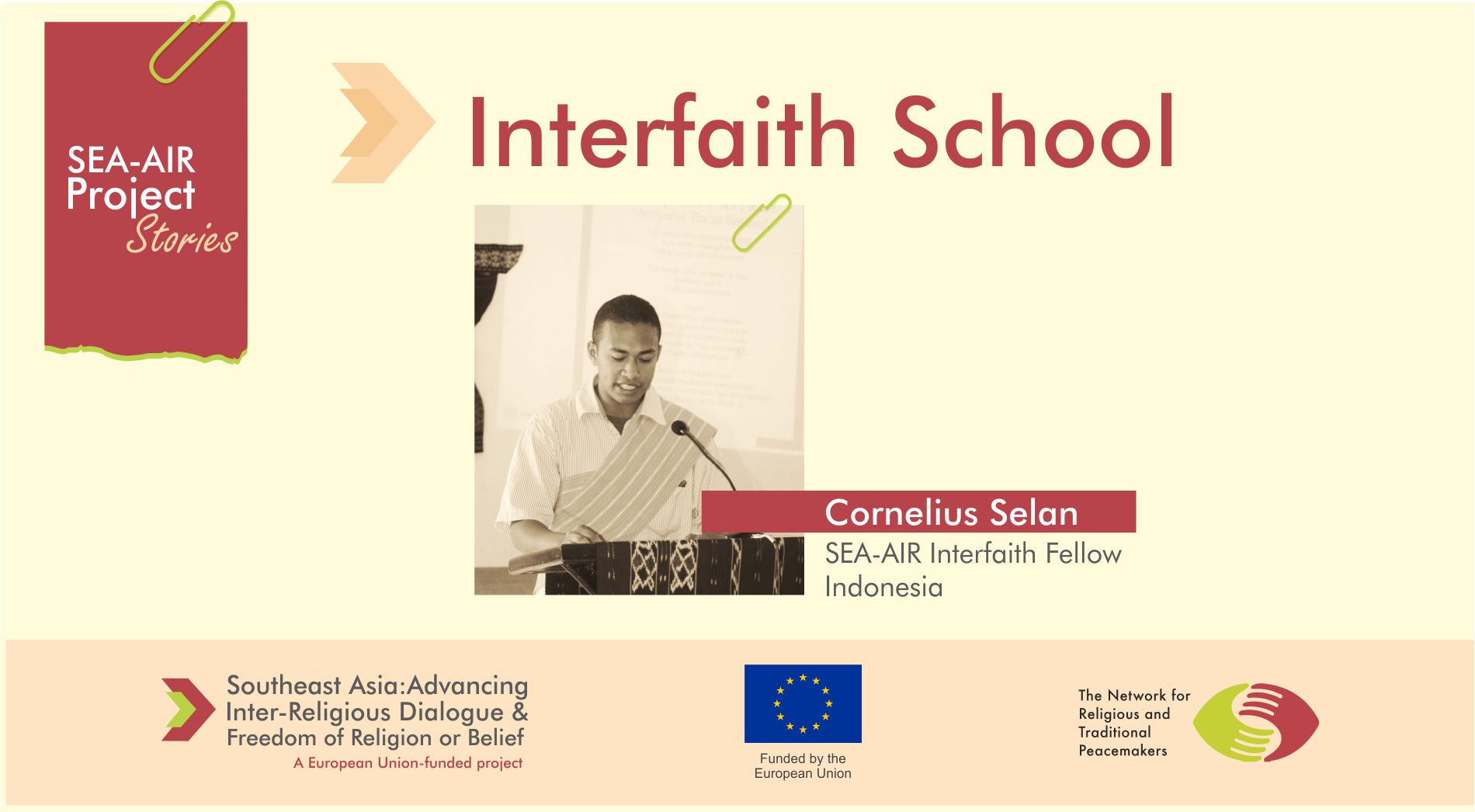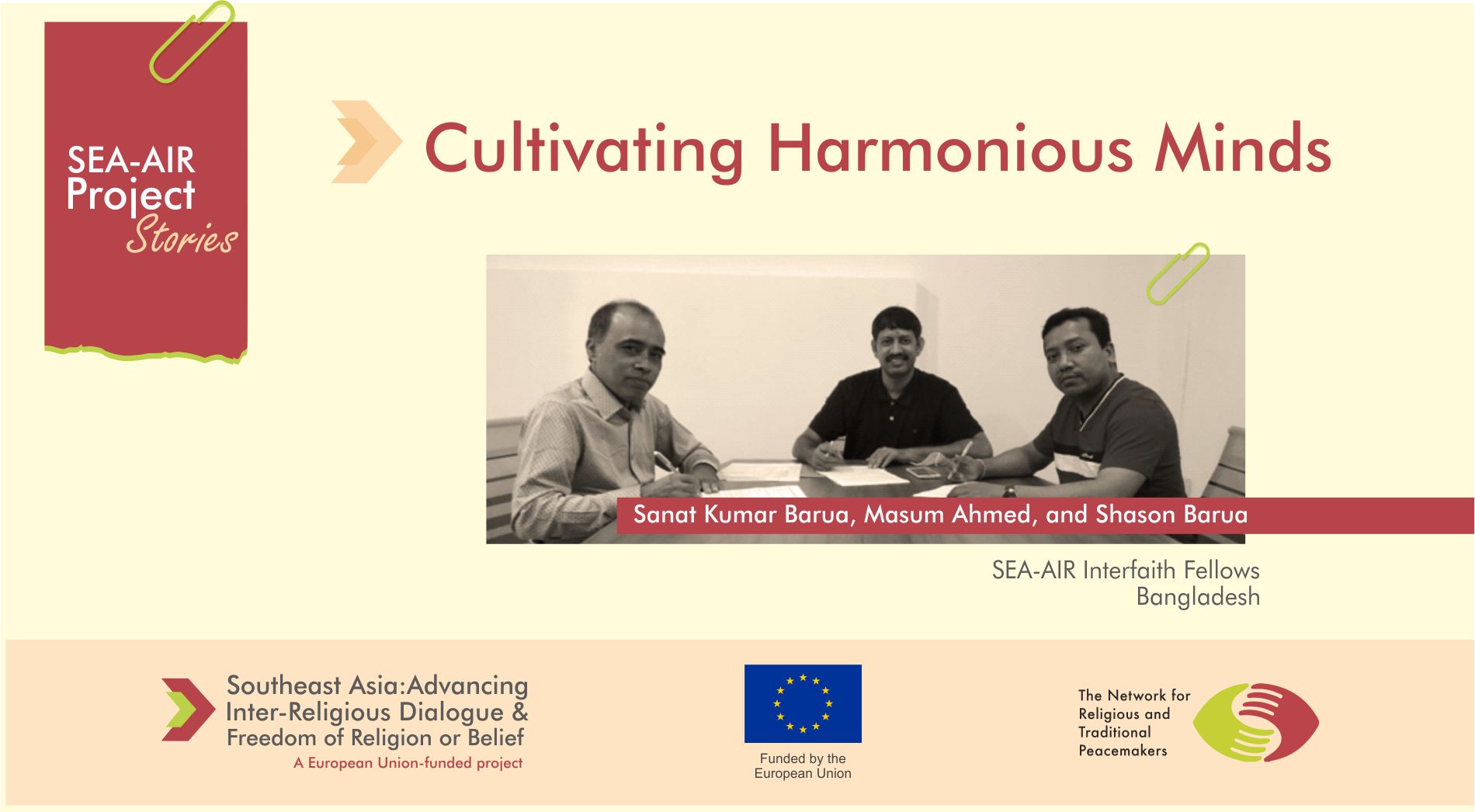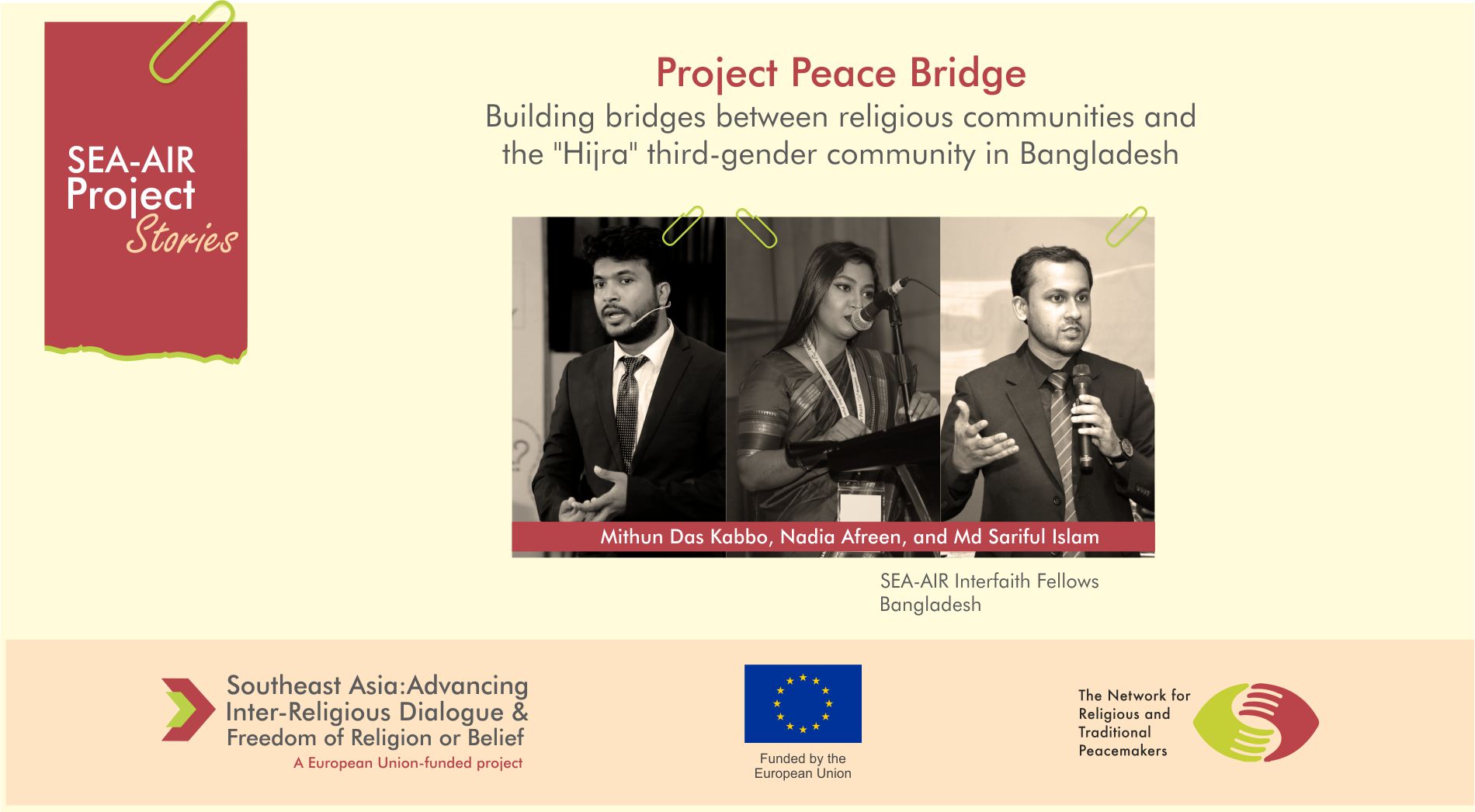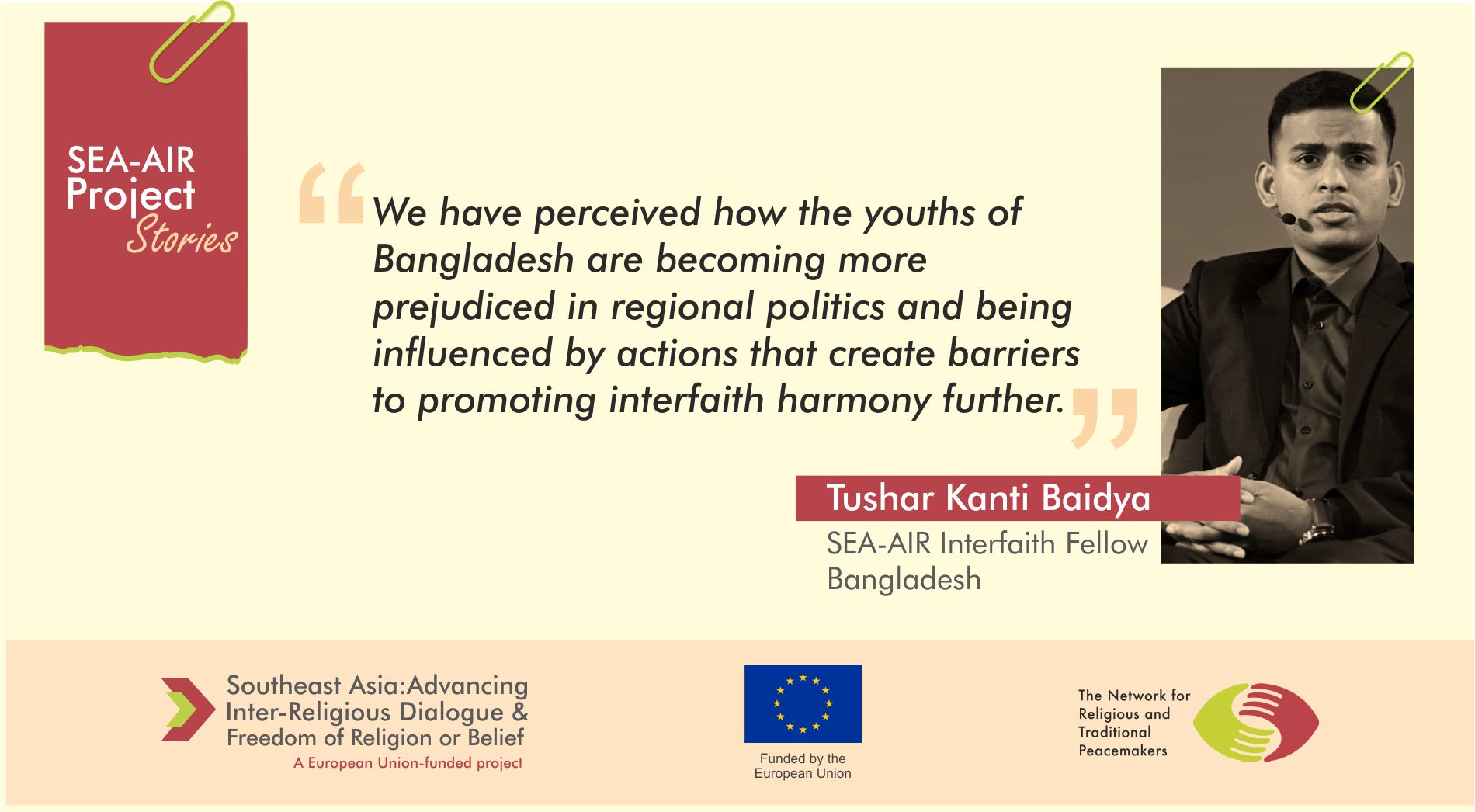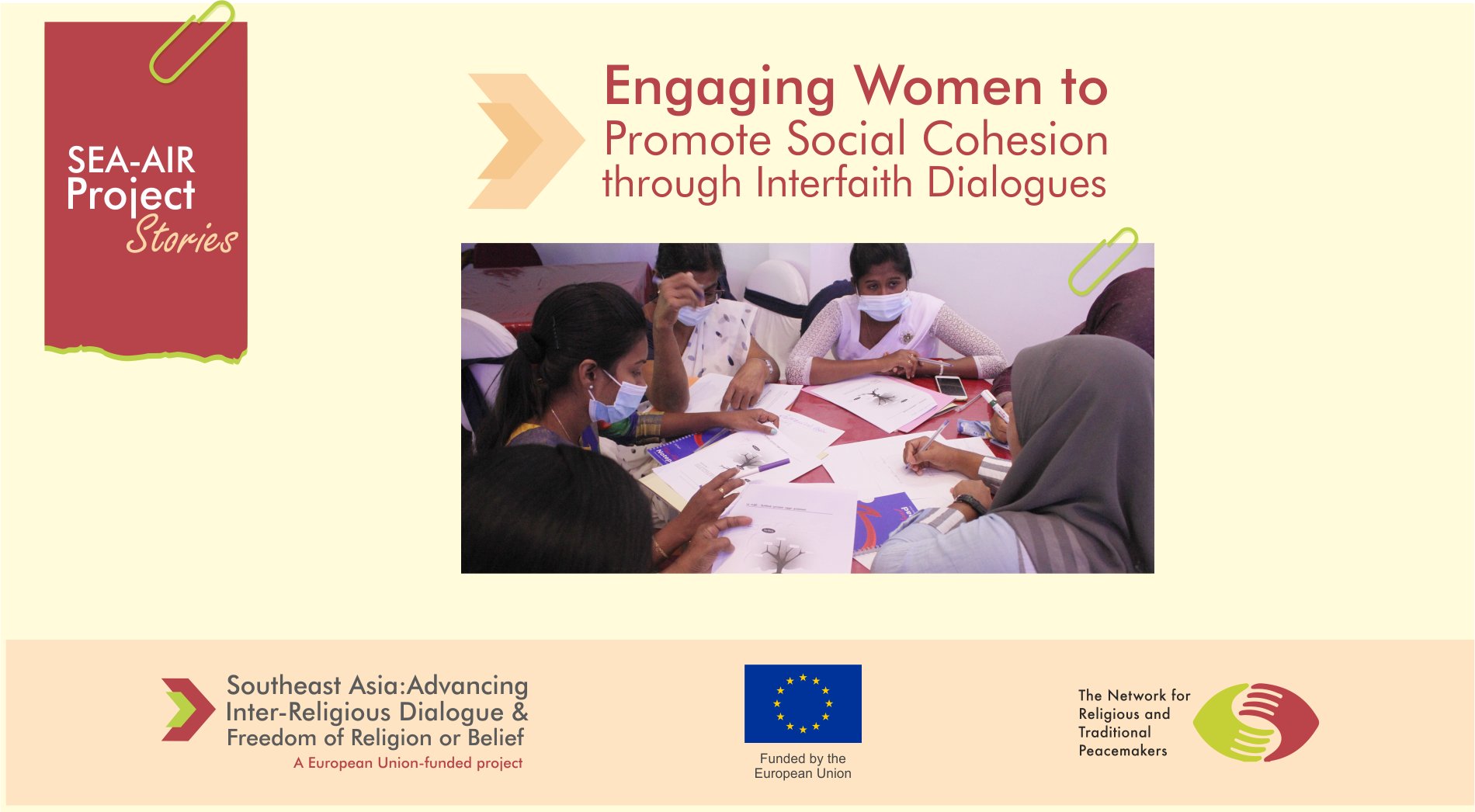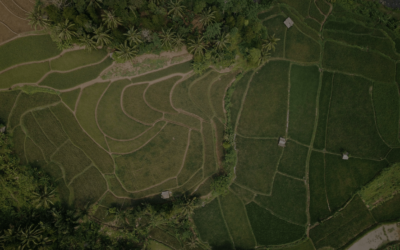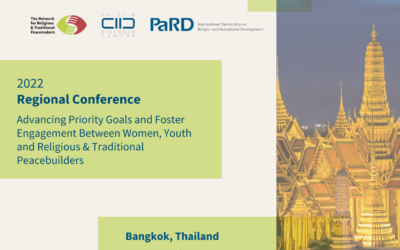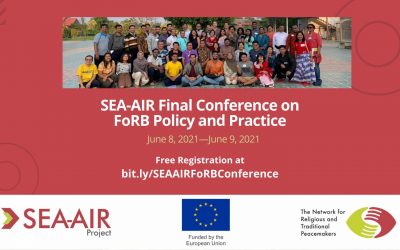SEA-AIR – Southeast Asia Advancing Inter-Religious Dialogue and Freedom of Religion or Belief
The Network’s work in South and Southeast Asia has focused on addressing the growing identity-based fault lines. This work has been conducted through continued collaboration with Network Members and Supporters, tradition and faith-oriented insider mediators (TFIM), and regional organizations to jointly advance analysis, action, and advocacy on the pressing conflict dynamics from the country to the regional level. The Network continues to operate on the basis of doing no harm and ensures inclusive measures in all initiatives. The Network for Religious and Traditional Peacemakers is implementing the European Union-funded consortium project “Southeast Asia: Advancing Inter-Religious Dialogue and Freedom of Religion or Belief” (SEA-AIR).
SEA-AIR Project aims to contribute to an improved consensus and a conducive environment for the protection of freedom of religion or belief and for peaceful coexistence of groups and individuals with different religious affiliations in Southeast Asia. Specifically, the project aims to enhance local capacities to address discrimination on the grounds of religion or belief through interfaith understanding and mainstreaming at the country and regional level in South and Southeast Asian countries.
Consortium Partners
The 30-month project began in January 2019 and concluded in late 2021. The project was implemented in consortium with the Network for Religious and Traditional Peacemakers, Finn Church Aid (FCA), Islamic Relief Worldwide (IRW), Sathirakoses Nagapradipa Foundation (SNF), World Conference of Religions for Peace (RfP), and World Faiths Development Dialogue (WFDD).
In addition to our consortium partners, several organizations and peacemakers support the project by contributing to the work of the Network’s Working Group in Asia.
Key Target Groups
The project’s key target groups include religious clergy and traditional actors, women, youth and minority change-makers, NGOs and civil society groups, the Association of Southeast Asian Nations (ASEAN) Secretariat, relevant South, and Southeast Asian States, and UN missions/agencies.
Final beneficiaries will include women, youth, minority groups, and other individuals marginalized or discriminated on the basis of religion or impacted by escalating challenges to FoRB in target countries.
Project Components
The SEA-AIR project takes a multifaceted approach to understanding the conflicts in one of the most religiously diverse regions in the world. Final beneficiaries will include women, youth, minority groups, and other individuals marginalized or discriminated on the basis of religion or impacted by escalating challenges to FoRB in target countries.
Strategic Country-Regional Analysis and Research
The SEA-AIR project is producing a series of training and communications materials for FoRB and peace practitioners in various areas such as gender, Islamophobia, hate speech, and international human rights law.
Sustainable Capacity Building and Regional Networking
One of the aims of the project is to build the capacity and skills of local changemakers/influencers and empower and support them to challenge discrimination and oppression of minority religions and FoRB in their own communities and contexts. Under the Interfaith Fellowship Program (IFP) of the SEA-AIR project, the staff selected 60 grassroots change-makers from 10 countries: Bangladesh, India, Indonesia, Malaysia, Myanmar, Nepal, Pakistan, Philippines, Sri Lanka, and Thailand. During two Fellowship Workshops in August 2019 and February 2020, Fellows took part in training sessions and activities focused on FoRB and religion’s role in the conflict, mediation, communication, peer learning, hardline engagement, inter and intrafaith dialogue, analysis, and process design. Mentors advised the Fellows after they returned home and they used the context analysis and process design skills learned to develop and implement plans of action. Additionally, SEA-AIR provides financial support to Fellows through small grants to design peaceful coexistence actions in the region.
SEA-AIR is also providing grant support to existing or developing Interfaith Councils or CSOs in Sri Lanka, Myanmar, and Bangladesh. This support aims to consolidate sustainable regional networks of traditional and faith-orientated local change-makers in their work.
Toward further strengthening of regional collaboration, SEA-AIR partner organizations are collaboratively working with the Executive Secretary of the International Buddhist Muslim Relationship Forum (IBMF) to broaden its membership and community reach.
Counter-Narrative Communications Strategy
This component involves mainstream and social media to highlight voices of influential religious, traditional, women, youth, and minority change-makers to promote mainstream acceptance of FoRB and peaceful coexistence narratives in Myanmar, Bangladesh, and broader South and Southeast Asia.
SEA-AIR Grant Stories
Learn how our fellows have implemented projects and conducted research through the financial and capacity support of the SEA-AID project.
Meet the SEA-AIR Fellows
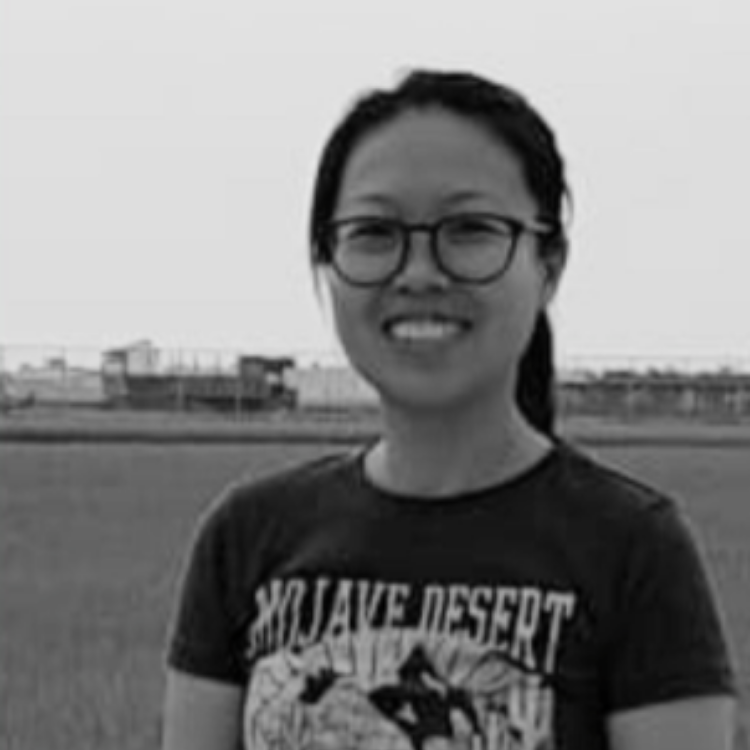
Melanie Siaw
SEA-AIR Fellow, Malaysia
“We cannot build a culture of peace if we do not yet have peace within ourselves. The work of peacebuilding starts from within us. As peacebuilders, we need to listen inwardly, discharge emotion, heal, sort out voices in our heads, exchange feedback, and find clarity.”
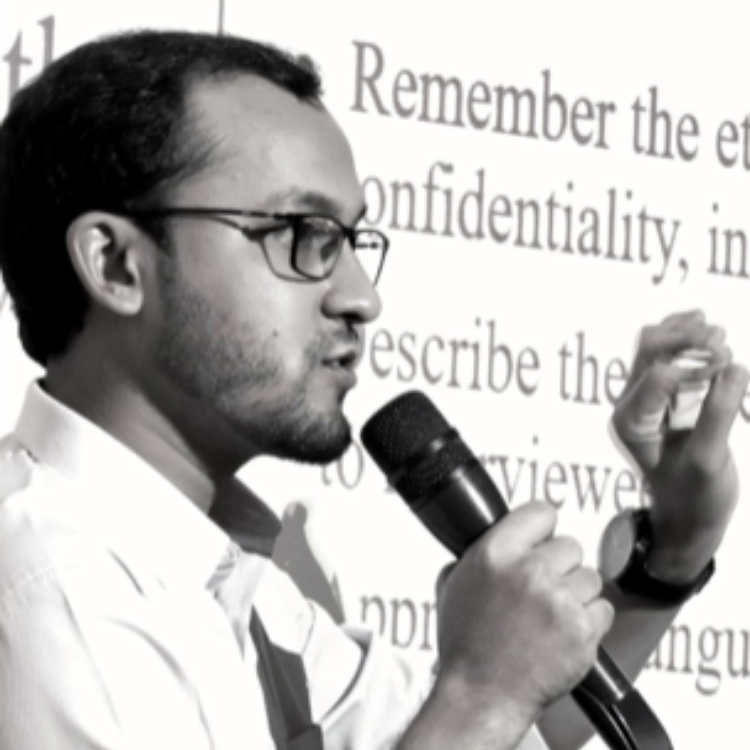
Sarifu Islam
SEA-AIR Fellow, Bangladesh
“Supporting peacebuilders by providing them with digital spaces, technical skills, and networking opportunities is critical to strengthen their capacity and the global peacebuilding community as a whole.”
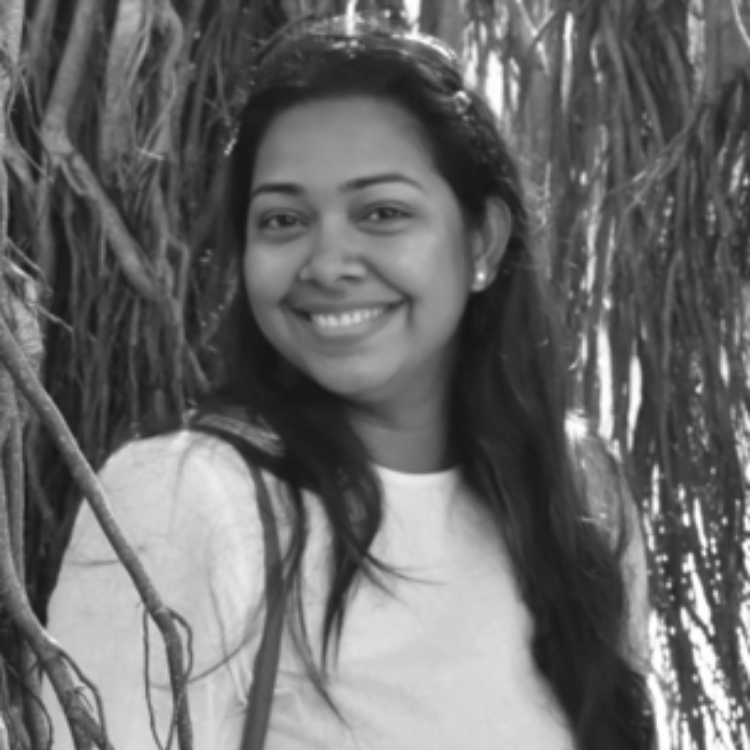
Saummya Amarasinghe
SEA-AIR Fellow, Sri Lanka
“While peacebuilding initiatives can be context-specific, the ultimate goal of global peacebuilding should look at improving mutual respect and trust that healthier relationships across boundaries which can be achieved through cooperative action and dialogue.”
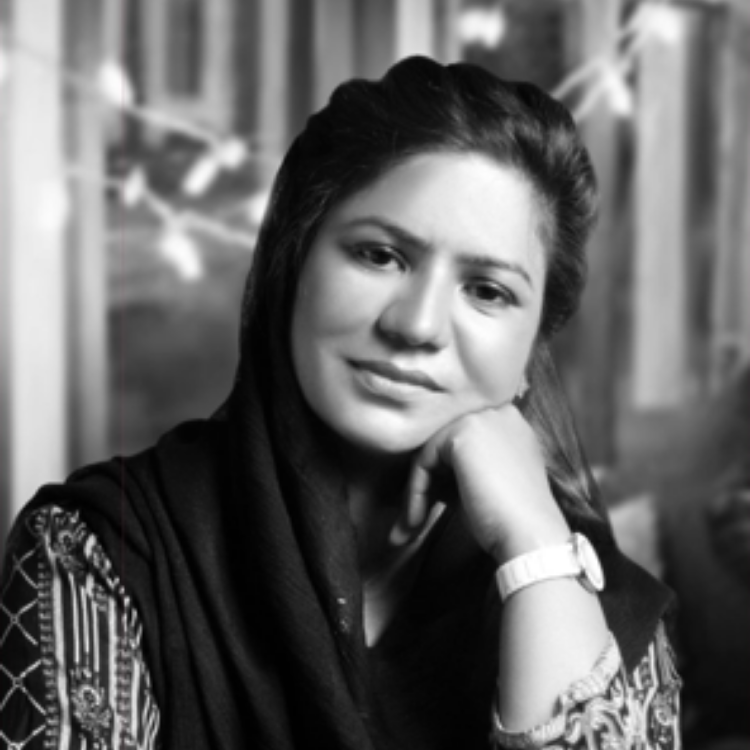
Sister Zeph
SEA-AIR Fellow, Pakistan
“Peacebuilders are working in the most difficult situations but they have no tools for their own security. Peacebuilders need safe spaces where they can have open dialogues.”
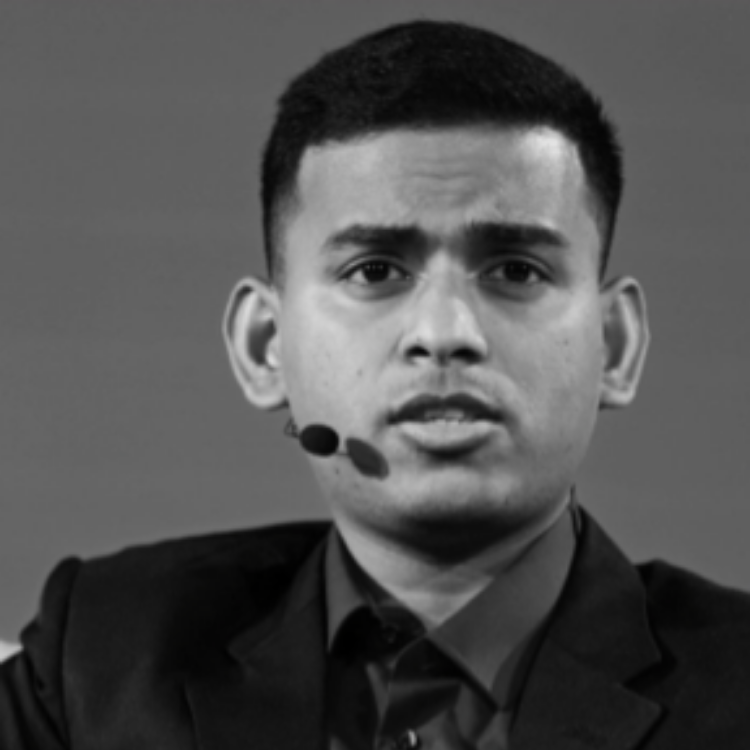
Tushar Kanti
SEA-AIR Fellow, Bangladesh
“Peacebuilders need to be acknowledged and supported by the religious and political groups who can sustain the peacebuilding work and create an impact in the long run.”
Resources
Related News
The SEA-AIR project takes a multifaceted approach to understanding the conflicts in one of the most religiously diverse regions in the world. Final beneficiaries will include women, youth, minority groups, and other individuals marginalized or discriminated on the basis of religion or impacted by escalating challenges to FoRB in target countries.
Empowering Peace: Unveiling Successes of Asia Working Group’s 2023 Small Grant Programs
Empowering Peace: Unveiling Successes of Asia Working Group's 2023 Small Grant Programs in South...
Consultations to Advance Collaboration Between Women, Youth and Religious Leaders in South and Southeast Asia
SEA-AIR Conference on FORB Policy and Practice
[button...

